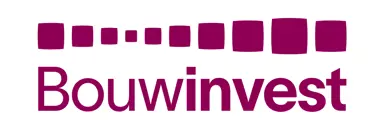
Dutch residential sector set to drive forward growth in 2025
3 March 2025
The rental residential sector is likely to be the main driver of value growth for real estate investors in 2025, says Jeroen Beimer, head of research at Bouwinvest. “Inflation and the accompanying interest rate policy have significantly impacted the real estate market in recent years, leading to declining valuations,” says Jeroen.
“Inflation has decreased somewhat but the inflation level in the Netherlands remains relatively higher than in our surrounding countries.”
The current geopolitical situation in the world makes the economic outlook uncertain, and we therefore expect that this will dampen the anticipated recovery in the Dutch real estate market, causing it to proceed more gradually. Also, ECB interest rate cuts are not a certainty, he says and for the Dutch real estate market, this could mean that initial yields will see little movement.
“The primary driver of value growth will therefore be rental growth, particularly in segments with strong demand and limited supply, such as the housing market,” says Jeroen.
“Real estate, with its stable cash flows, has shown itself to be a good hedge against inflation in recent years, and we expect this to remain the case. For a long-term investment horizon, 2025 could be a good ‘vintage year’ for real estate investments. We also anticipate a gradual increase in investor interest.”
Although Beimer expects only limited interest rate cuts, he does see opportunities for yield compression in niche segments of the housing market that are currently underdeveloped. Sectors such as student housing and private residential care, he says, show above-average growth potential and therefore offer an attractive risk-return profile.
“From the demand side, the Dutch housing market, including healthcare real estate, has strong underlying fundamentals and should be attractive to investors,” he says. “At the same time, the Dutch housing market is not unique in this regard. It is a European phenomenon, and the Netherlands is competing for capital with other European markets.”
One problem facing the Dutch market is that of uncertainty about regulations and unfavorable tax measures. The Netherlands needs to build approximately 1 million homes by 2034, and this is going to cost some €400 billion in capital.
“Our message to the national government is clear: ensure consistent policies and an investment climate that is attractive to capital, both nationally and internationally,” Beimer says.

Contact


